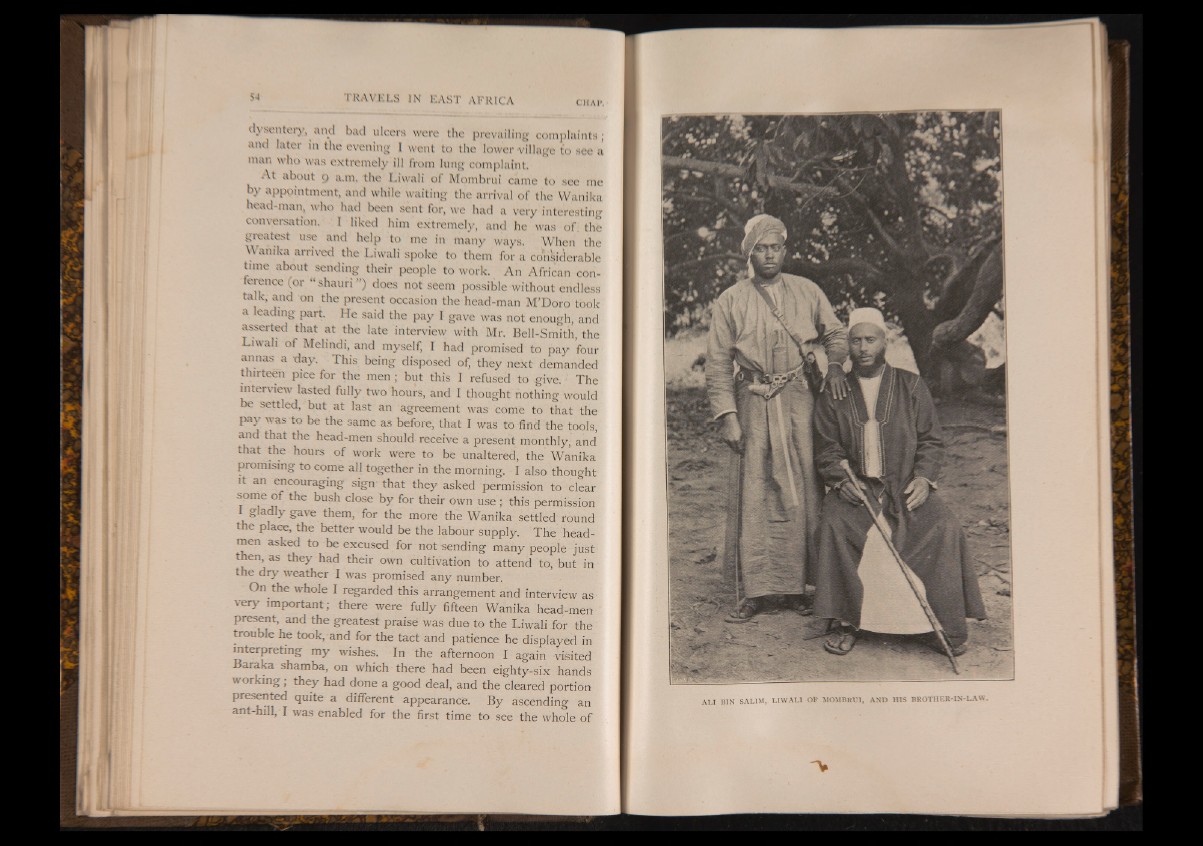
1'RAVKI.S IN EAST AFRICA c: 11 ai>,
dysentery, and bad ulcers were the prevailing complaints;
and later in the evening 1 went to the lower village io see a
mar« who was extremely ill from lung complaint.
A t about 9 a.m. the l.iwnli of Mombrul came to see me
by appointment, and while waiting the arrival of the Wanika
head-man, who had been sent for, we had a very interesting
conversation. I liked him extremely, and he was of the
greatest use and help to me in many ways. When the
Wanika arrived the Liwali spoke to them for a considerable
tune about sending their people to work. An African conference
(or u shauri") does not seem possible without endless
talk, and on the present occasion the head-man M’Doro took
a leading part. He said the pay I gave was not enough, and
asserted that at the late interview with Mr. Bell-Smith, the
Liwali o f Melindi, and myself, I had promised to pay four
annas a day. This being disposed of, they next demanded
thirteen pice for the men ; but this I refused to give. The
interview lasted fully two hours, and I thought nothing would
be settled, but at last an agreement was come to that the
pay was to be the same as before, that I was to find the tools,
and that the head-men should receive a present monthly, and
that the hours of work were to be unaltered, the Wanika
promising to come all together in the morning. I also thought
it an encouraging sign that they asked permission to clear
some o f the bush close by for their own use ; this permission
1 gladly gave them, for the more the Wanika settled round
the place, the better would be the labour supply. The headmen
asked to be excused for not sending many people just
en, as they had their own cultivation to attend to, but in
the dry weather I was promised any number.
On the whole I regarded this arrangement and interview as
very important; there were fully fifteen Wanika head-men
present, and the greatest praise was due to the Liwali for the
trouble he took, and for the tact and patience he displayed in
interpreting my wishes. In the afternoon I again visited
Baraka shamba, on which there had been eighty-six hands
working; they had done a good deal, and the cleared portion
presented quite a different appearance. By ascending an
ant-hill, I was enabled for the first time to see the whole of
AI.I BIN SALIM, LIWALI OP MOMRRl’ I, AND HIS BROTHER-IN-LAW.